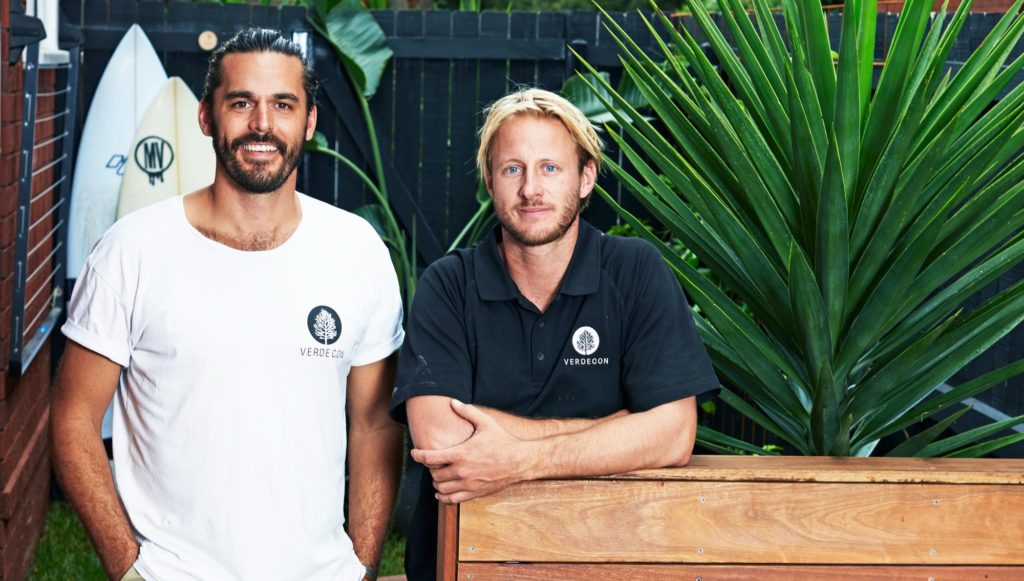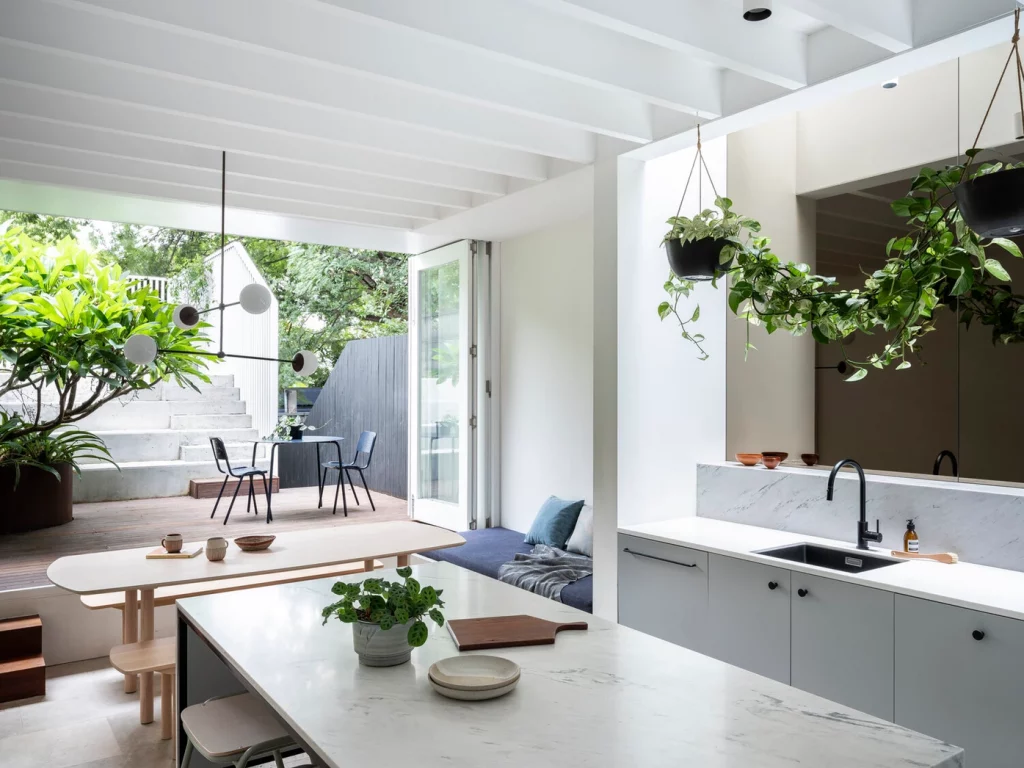When Dean Ipaviz first met Matt Baker, they realised that their upbringings were remarkably similar despite growing up on opposite sides of the country. Both shared a love for nature and the outdoors, and connected over long conversations about the impact of their industry on the environment. They spoke about waste, responsible material procurement, and the embodied energy of the materials around them — issues that the rest of the construction industry seemed to be ignoring. While they worked on a commercial construction site in Surry Hills, it became apparent that the industry saw its role as delivering jobs, failing to consider the long-term impact of materials, or the environmental footprint of finished products.
“We had a synergy about what mattered to us, so we decided to see if we could do things better,” said Dean. That’s when Verdecon was born: a ‘responsible construction company’ which set out to challenge the industry’s status quo, inspired by readings from Patagonia’s Yvon Chouinard and Vincent Stanley. From choosing concrete made with recycled ingredients, to electrifying their fleet of vehicles, Verdecon is making a conscious effort to reduce waste and minimise the impact of construction on the planet.

“One of the biggest changes that our industry needs is to start looking to nature,” said Holly McQueen, Environmental Impact & Office Manager at Verdecon.
“If you can wrap your head around trying to mimic nature — leave no harm and leave no waste — all of the answers are there. In the construction industry, this is probably the hardest, but the biggest opportunity for change.”
Doing things better is not without its challenges. “As a builder, you’re typically bidding against several others to get the job done. Nine times out of ten, the client is looking to engage the cheapest builder or lowest price,” explained Dean. “Our cost has to be competitive, so we’re meeting clients halfway by removing the margin on the installs of renewables as an incentive.”
While Verdecon uses these opportunities to educate clients, they are also looking to architects to integrate better materials in their designs. “A lot of different people are involved in building a house from beginning to end, but we all have to keep the final result in mind. When you’re designing or ideating, you should be thinking about what impact it’s going to have on the environment and the people living in it long term.”
The Verdecon team has come up against other complex issues in reducing its footprint. “One of our biggest emissions sources is staff getting to and from work. We’re still looking at ways to get them to carpool or make their transit lighter,” explained Dean. Waste management is another area they are tackling, “options for recycling construction waste in Byron Bay are also pretty limited, so we’ve had to modify how we deal with it in comparison to our Sydney team…it’s one of the many challenges we face as an industry.”
“You can’t do it alone. One of the challenges is trying to create the answers.”



Looking ahead, the team hopes to take advantage of the Byron and Bondi sun to help power their sites. “If we can get everyone charging their tools from a solar-powered battery, we can set a new precedent for the industry. We’re at the real pointy end of figuring that out, but then we’ll be able to pass that knowledge on.”
“When people ask what B Corp has done for us, it’s made us start pushing what is possible. We’ll keep workshopping through it because we know if we can find the best result and share it with everyone, then it becomes normal and if we’re ever going to ‘build back better’ then someone needs to test what’s possible.”
Verdecon appears on the 2021 Best for the World list for Environment. Best for the World recognises B Corps with exceptional work in any of the five impact areas of the B Impact Assessment: community, customers, environment, governance, and workers. Their score has placed them in the top 5% of B Corps for their size in that impact area.

